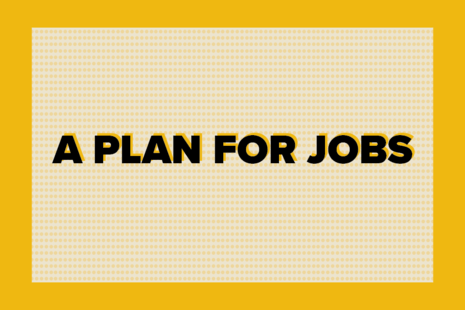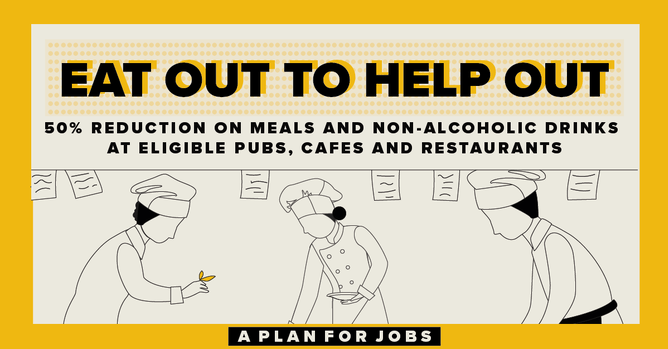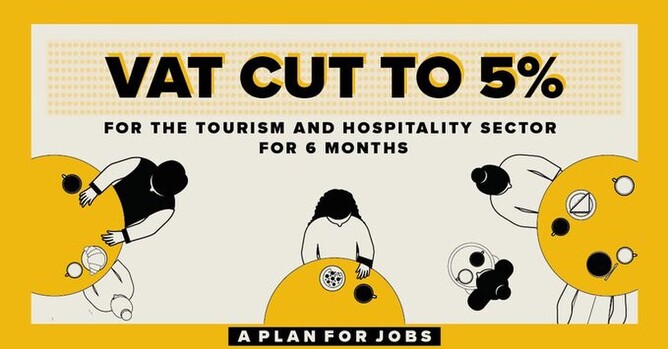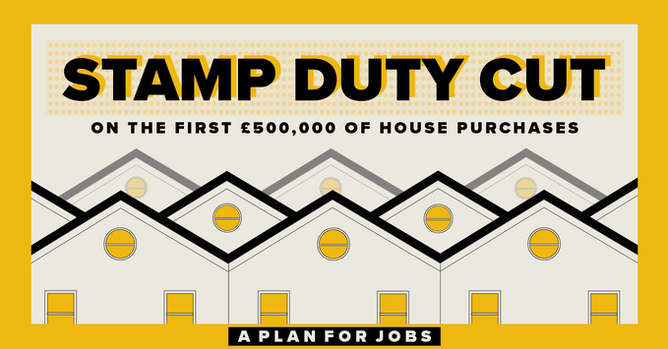Chancellor’s Statement
Rishi Sunak set out the Government’s Plan For Jobs on 8 July 2020.
It is clear the Government are keen to get the economy going again as quickly as possible and are supporting businesses and employers with targeted measures.
There were several important announcements made, as follows:
Furlough Scheme
The Chancellor confirmed that the furlough scheme will end on 31 October 2020 and will not be extended. What was announced was a ‘bonus’ for employers that bring back a furloughed worker and pay them at least £520 per month to January 2021. These employers will receive a £1,000 grant, per employee brought back from furlough.
Where we deal with your payroll filings, we will liaise directly with you about the claim for this grant when the time comes (February 2021). For clients operating their own payroll you will need to discuss this with your provider immediately.
There are around nine million furloughed employees so this measure alone could cost the government nine billion pounds.
Kickstart scheme
This is a scheme to give employment to 16-24 year olds at risk of long term unemployment.
Employers that offer a 6 month work placement to an individual on Universal Credit that is at a minimum of 25 hours a week paid at the Minimum Wage or above and give training and support will qualify, the Wages and National Insurance to be paid by a grant from the Government.
Traineeships
The Government will fund employers who provide trainees with work experience, at a rate of £1,000 per trainee. The government will improve provision and expand eligibility for traineeships to those with Level 3 qualifications and below, to ensure that more young people have access to high quality training. These traineeships are available to 16-24 year olds.
Apprenticeships
The Government already support employers with the cost of training for qualifying apprenticeships. The change is that the Government will introduce a new payment of £2,000 to employers in England for each new apprentice they hire aged under 25, and a £1,500 payment for each new apprentice they hire aged 25 and over, from 1st August 2020 to 31st January 2021.
Hospitality, accommodation and attractions businesses
The Government acknowledged that businesses in these areas have been hardest hit by the pandemic. To support them they have announced the following:
Eat Out to Help Out – The government will introduce the Eat Out to Help Out scheme to encourage people to return to eating out. This will entitle every diner to a 50% discount of up to £10 per head on their meal, at any participating restaurant, café, pub or other eligible food service establishment. The discount can be used unlimited times and will be valid Monday to Wednesday on any eat-in meal (including on non-alcoholic drinks) for the entire month of August 2020 across the UK. Participating establishments will be fully reimbursed for the 50% discount.
Businesses that want to offer this will need to register with the Government and will be paid the 50% discount.
Temporary VAT cut for food and non-alcoholic drinks – From 15 July 2020 to 12 January 2021 the reduced (5%) rate of VAT will apply to supplies of food and non-alcoholic drinks from restaurants, pubs, bars, cafés and similar premises across the UK. Further guidance on the scope of this relief will be published by HMRC in the coming days. Those clients that may qualify should watch HMRC’s website in the coming days as no doubt there will be caveats and nuances to the application of this reduction.
Temporary VAT cut for accommodation and attractions – From 15 July 2020 to 12 January 2021 the reduced (5%) rate of VAT will apply to supplies of accommodation and admission to attractions across the UK. Further guidance on the scope of this relief will be published by HMRC in the coming days. Again. those clients that may qualify should watch HMRC’s website in the coming days as no doubt there will be caveats and nuances to the application of this reduction.
Housing market
Temporary Stamp Duty Land Tax (SDLT) cut – The government will temporarily increase the Nil Rate Band of Residential SDLT, in England and Northern Ireland, from £125,000 to £500,000. This will apply from 8 July 2020 until 31 March 2021. Please note this measure only applies to residential property purchases in England and Northern Ireland. The Scottish and Welsh Governments may choose to match this by increasing their bands for Land and Buildings Transaction Tax and Land Transaction tax respectively.
The new bands are:
| Property or lease premium or transfer value | SDLT rate |
| Up to £500,000 | Zero |
| The next £425,000 (the portion from £500,001 to £925,000) | 5% |
| The next £575,000 (the portion from £925,001 to £1.5 million) | 10% |
| The remaining amount (the portion above £1.5 million) | 12% |
From 8 July 2020 to 31 March 2021 the special rules for first time buyers are replaced by the reduced rates set out above.
Use the SDLT calculator to work out how much tax you’ll pay.
If you are buying a 2nd or subsequent residential property or if you are buying in a Limited Company the following rates apply
The 3% higher rate for purchases of additional dwellings applies on top of revised standard rates above for the period 8 July 2020 to 31 March 2021.
The following rates apply:
| Property or lease premium or transfer value | SDLT rate |
| Up to £500,000 | 3% |
| The next £425,000 (the portion from £500,001 to £925,000) | 8% |
| The next £575,000 (the portion from £925,001 to £1.5 million) | 13% |
| The remaining amount (the portion above £1.5 million) | 15% |
This measure is likely to interest homeowners looking to upgrade and landlord’s looking to expand their portfolios.
Green Homes Grant – The government will introduce a £2 billion Green Homes Grant, providing at least £2 for every £1 homeowners and landlords spend to make their homes more energy efficient, up to £5,000 per household. It is a two thirds grant so if you spend £5,000 you get a grant of £3,333. This will interest those that own their own homes and those that have rental properties. Before spending money please ensure that you qualify under the rules and that understand how to claim. Details will be published in the coming weeks.
The measures announced today total are likely to cost the Government £30 billion on top of the estimated £158.7 billion of fiscal support and £122.8 billion of tax deferrals and loans announced since March 2020, a total of over £300 billion.
Government borrowing will be soaring and at some point we will need to pay for this. No doubt we will hear more on the plans for this when the Chancellor holds his next Budget, expected in November 2020.
As ever if you want to discuss these measures or any if those announced since the pandemic started do get in touch with us.




